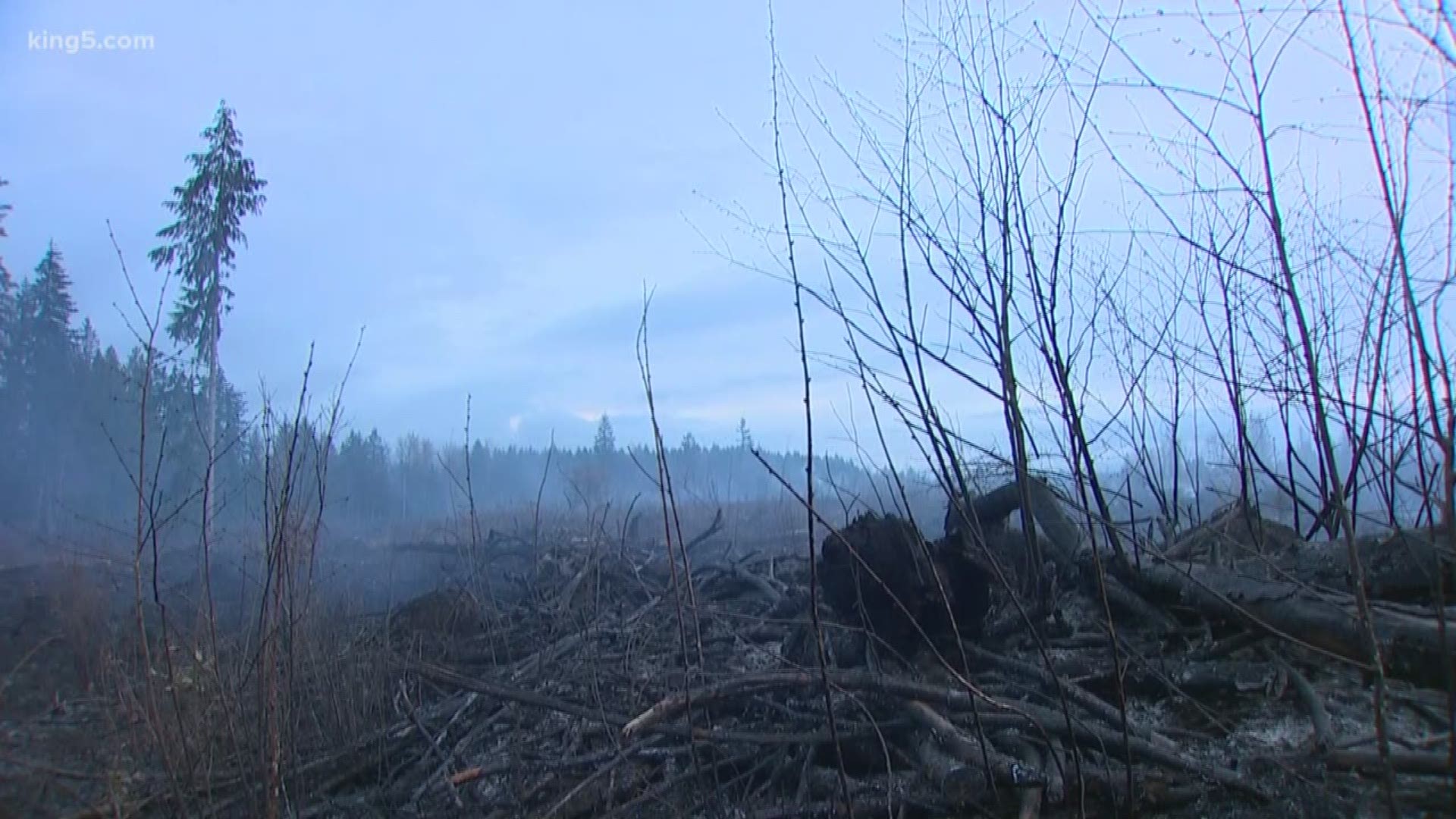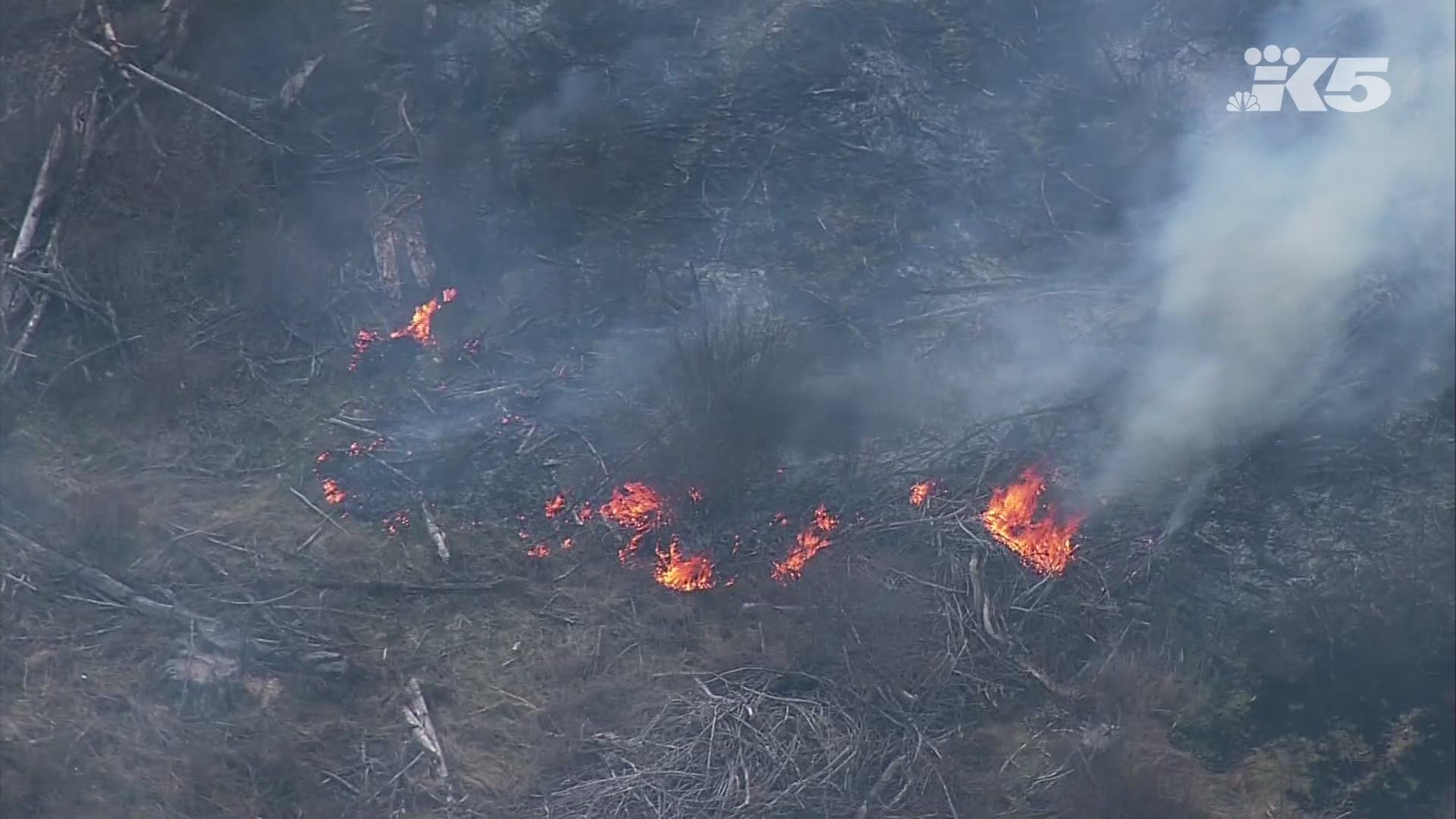Thursday marked the first full day of spring and already areas of Washington state west of the Cascades were dealing with a high number of wildfires.
The number of fires reported in Washington state this week was 50 by Thursday afternoon, with 49 west of the Cascades, according to the Department of Natural Resources.
Some of the biggest fires west of the Cascades this week were:
- 100-acre fire near Mossyrock
- 85-acre fire in Wahkiakum County
- 40-acre fire near Kelso
As of Thursday afternoon, more than half of the fires that occurred were in southwest Washington. It's "unusually dry down there," DNR spokesperson Joe Smillie explained. "They had a big snowfall about a month ago, and then it melted quickly without much rain behind it."
No. This is not normal, he added.
John Saltenberger with the Northwest Interagency Coordination Center recently told KGW that it only takes a few days of warm, dry weather to increase fire danger. The Pacific Northwest just saw record-breaking temperatures, when highs reached into the mid- to upper-70s. On Tuesday, Sea-Tac Airport hit 79 degrees, shattering the old record high of 63 degrees.
“We’re thinking right now it’s going to be a very significant fire season,” Washington State Lands Commissioner Hilary Franz said in February.
Charley Burns, a fire manager for the Department of Natural Resources, said fires in March sometime face resource difficulties.
"For us firefighters, it's spring training for the season coming up," he said.
Burns added it can difficult to bring crews on for fires before the official season starts on April 15.
"Right now we're scrambling to find firefighters because they're still in school; and budget-wise, we need a little bit more money," he said.
South Pierce Fire chief Lloyd Gayle said the predictions for fire season have him feeling apprehensive. He noted their fire district is essentially 140 square miles of wildlands - and vulnerable to wildfires.
It's why he asks homeowners to keep 30 feet of defensible space around their homes.
"In the event there is a wildland fire, we have a better chance of protecting it from being consumed," he said. "When the house is overgrown with brush and things like that, it makes it much more of a challenge for us."
"Who knows," said Burns. "It's going to be a very interesting summer."


